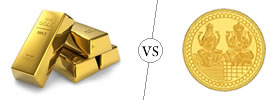Difference between Fact and Truth
Key difference: Facts and truth are two words that we come across very commonly. They are closely related and hence many dictionaries actually list them as synonyms. However, truth is often considered to have a grander scope than fact. Truth takes in consideration feelings and beliefs, whereas they have no place in fact. A fact is something that is true everywhere and for everyone. However, something that is true for one person may not be true for everyone.
 Facts and truth are two words that we come across very commonly. These terms are used in our daily lives. They are closely related and hence many dictionaries actually list them as synonyms. However, truth is often considered to have a grander scope than fact.
Facts and truth are two words that we come across very commonly. These terms are used in our daily lives. They are closely related and hence many dictionaries actually list them as synonyms. However, truth is often considered to have a grander scope than fact.
The term ‘fact’ is derived from the Latin word ‘factum’ meaning "a thing done or performed", but this definition is now obsolete. The new definition of fact states something that has actually occurred or happened. Facts can be verified or proven using standard references or scientific experiments. The word fact is sometimes used synonymously with truth. Scientific facts usually arise from scientific inferences, an educated guess or opinion, made by a person, though it is not a fact until is proven. Facts are hard core and hence they cannot keep constantly changing; a fact remains a fact until proven otherwise. For example, people used to believe that the world was flat, until observational evidence proved it to be a sphere. Ferdinand Magellan is credited with proving the world is not flat when he and his crew were the first to complete the circumnavigation of Earth. Facts are also universal and they do not change according to region, cast, culture, religion, etc. Laws such as Law of Gravity, Boyle’s Law, etc are also considered as facts.
According to Dictionary.com, ‘fact’ is defined as:
- Something that actually exists; reality; truth: Your fears have no basis in fact.
- Something known to exist or to have happened: Space travel is now a fact.
- A truth known by actual experience or observation; something known to be true: Scientists gather facts about plant growth.
- Something said to be true or supposed to have happened: The facts given by the witness are highly questionable.
- Law. Often, facts. An actual or alleged event or circumstance, as distinguished from its legal effect or consequence. Compare question of fact, question of law.
Truth, on the other hand, is a true state of a certain matter, person, place, thing or event. Truth is considered to be more archaic than fact. It is more subjective than resolute fact. Dictionary.com defines ‘truth’ as:
- The true or actual state of a matter: He tried to find out the truth.
- Conformity with fact or reality; verity: the truth of a statement.
- A verified or indisputable fact, proposition, principle, or the like: mathematical truths.
- The state or character of being true.
- Actuality or actual existence.
- An obvious or accepted fact; truism; platitude.
- Honesty; integrity; truthfulness.
- (Often initial capital letter) ideal or fundamental reality apart from and transcending perceived experience: the basic truths of life.
- Agreement with a standard or original.
- Accuracy, as of position or adjustment.
- Archaic. Fidelity or constancy.
 Truth takes in consideration feelings and beliefs, whereas they have no place in fact. A fact is something that is true everywhere and for everyone. However, something that is true for one person may not be true for everyone.
Truth takes in consideration feelings and beliefs, whereas they have no place in fact. A fact is something that is true everywhere and for everyone. However, something that is true for one person may not be true for everyone.
For example:
The building is 500 feet high. – Fact – It is proven that the building is that high.
Mary is afraid of going up there. – Truth – This is true as Mary may be scared of heights and hence is afraid of going up there. However, this cannot be considered a fact as this is not true for everyone. Furthermore, it may not always be true for Mary either. She may not be afraid of going to the top of a 100 feet building, she may only be afraid of building higher the 250 feet. So, while the statement is true, it cannot be considered a fact.
Another example:
The Eiffel Tower is in Paris. – Fact – Everyone knows that the Eiffel Tower is in Paris.
John is in Paris. – Truth – John is currently in Paris, however this is not a fact because he will not always be in Paris. He may only be there for vacation, and in a week will return. Hence, in a week when John leaves Paris, this statement will no longer be true. It will be considered false, as John is no longer in Paris, he returned home.
Image Courtesy: europeword.com, koshercaffeine.blogspot.com









Comments
Ben
Sat, 01/06/2018 - 00:47
grant
Thu, 12/07/2017 - 04:15
Add new comment